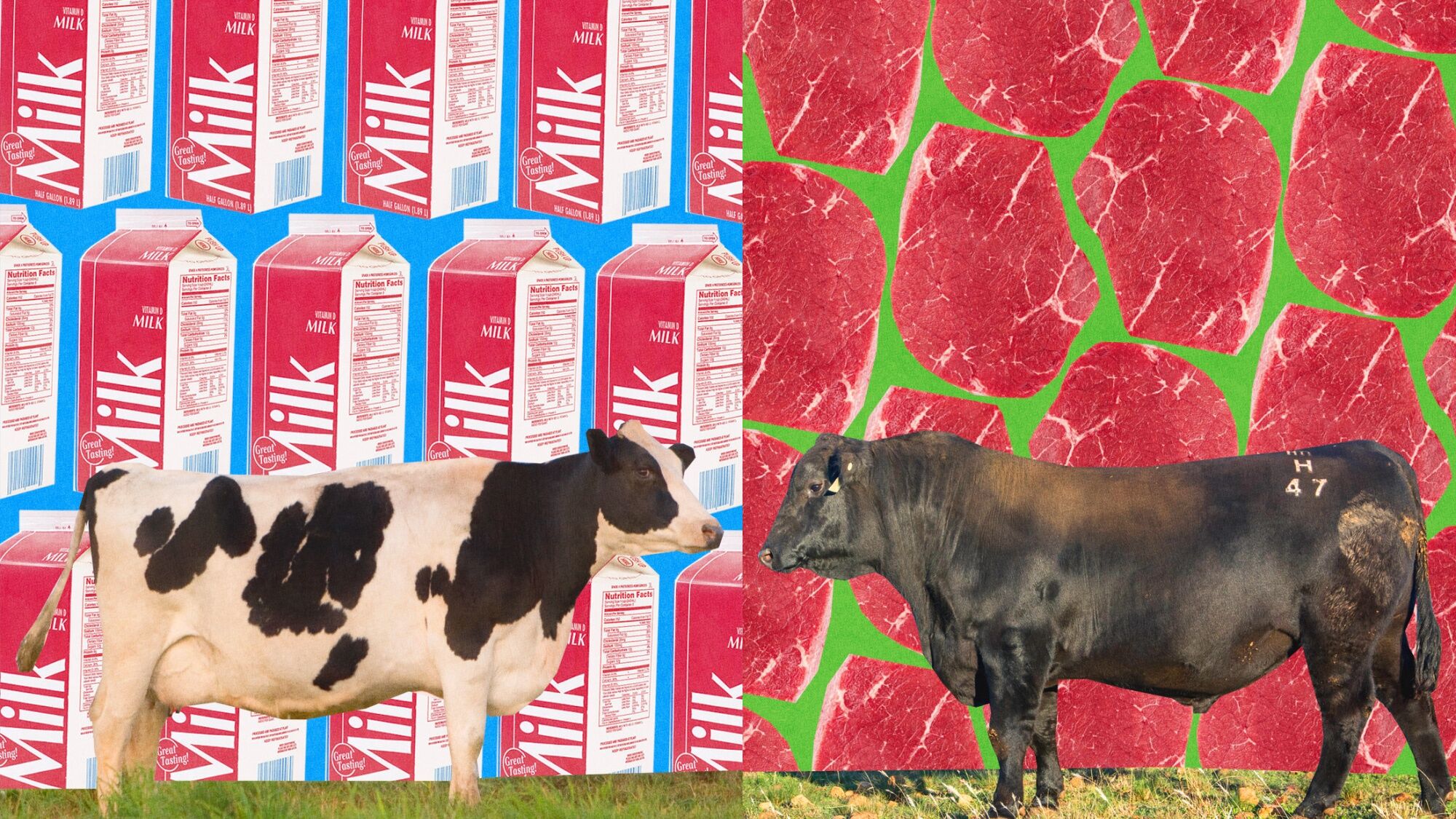
US Farmers Breed Hybrid Dairy Cows to Grow Beef Supply
The additional income stream is a welcome boost for US dairy producers, who’ve had a tough couple of years selling milk.
With America’s supply of beef cattle the lowest since 1961, dairy farmers are finding another way to make money: breed more calves destined for the slaughterhouse.
Dairy farmers, who traditionally produce new milking cows to replace their outgoing ones, are increasingly churning out meatier offspring that they can sell to ranchers to raise for human consumption. Those hybrid calves — created by artificially inseminating a dairy cow with semen from a beef bull — are beefier than a pure dairy animal and can fetch the seller hundreds or even thousands of dollars apiece. That’s a big payday in an industry that last summer faced such a pronounced milk glut that farmers were forced to dump it down the drain.
“Milk prices are up and down and so farmers are always looking for a way to offset costs to be as efficient as possible,” said Amy Penterman, an owner of Dutch Dairy LLC in Wisconsin, which breeds about 70% of its 900-cow milking herd for beef. In addition to capturing new revenue, “it’s also rewarding because the beef supply has diminished over the last few years. We’re able to add that extra supply into the market to keep the cost down for our consumers.”
Questions about this Article?:

Copyright © 2021-2025. All rights reserved
This website stores cookies on your computer. These cookies are used to collect information about how you interact with our website and allow us to remember you. We use this information in order to improve and customize your browsing experience and for analytics and metrics about our visitors on this website. To find out more about the cookies we use, see ourPrivacy Policy.